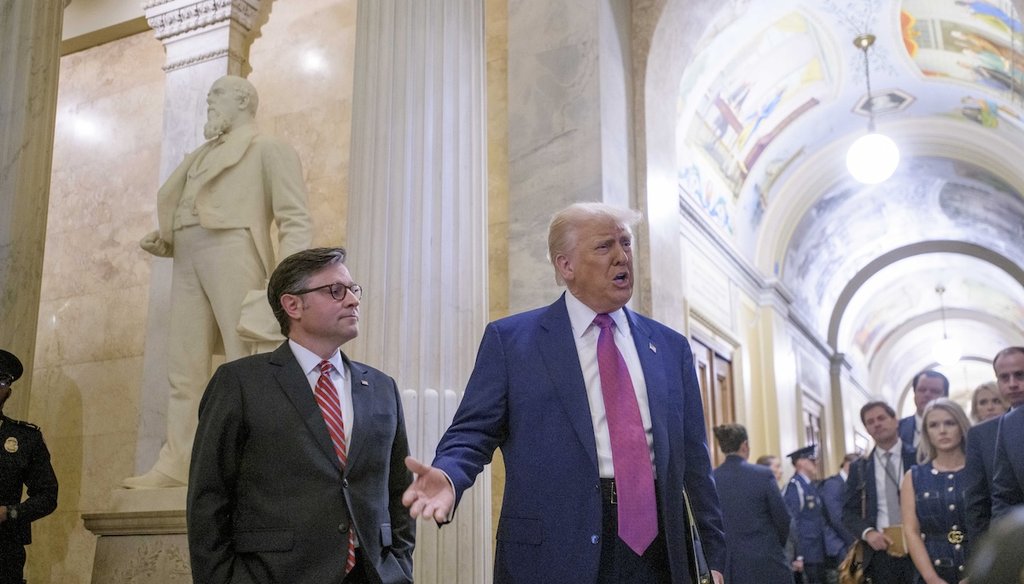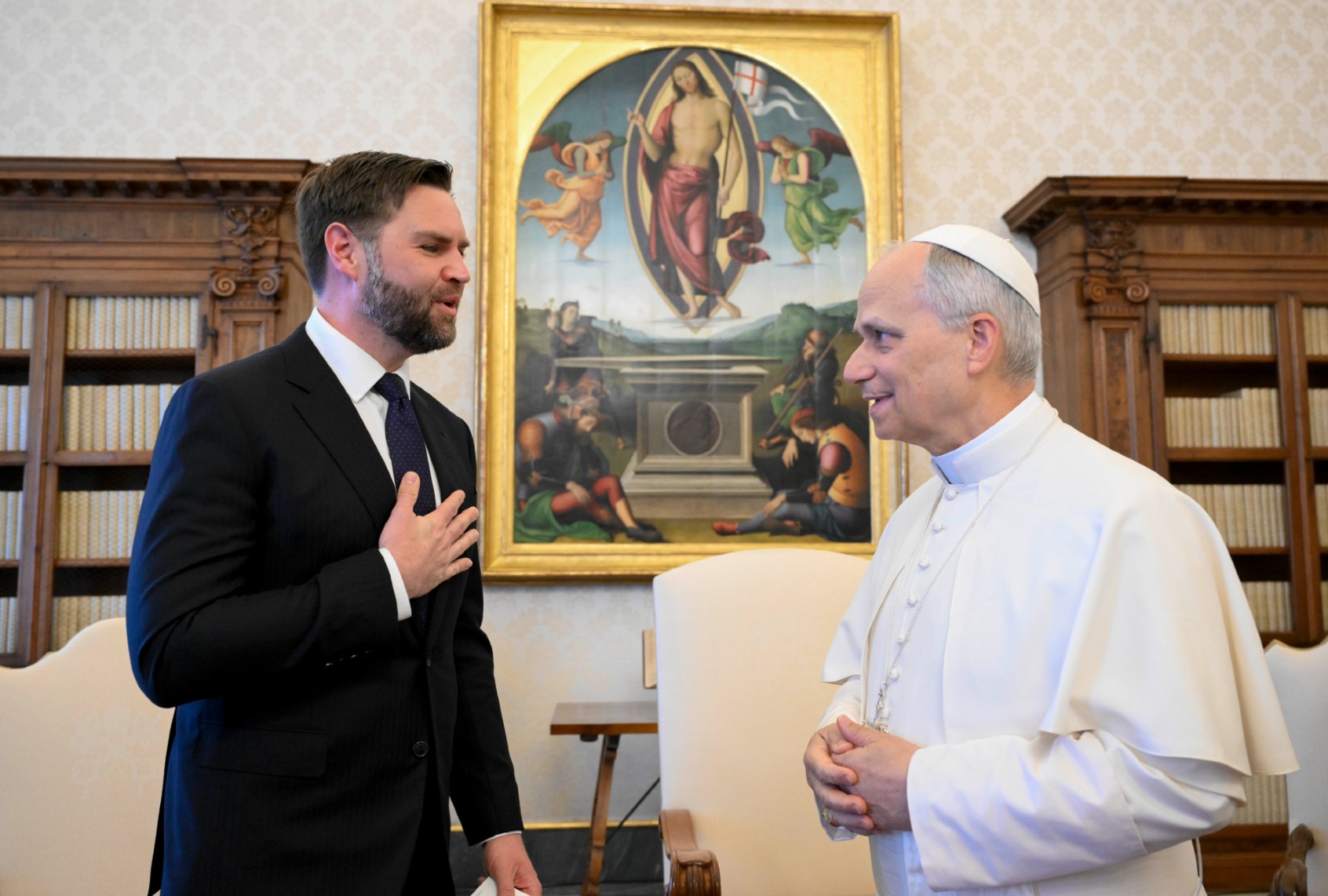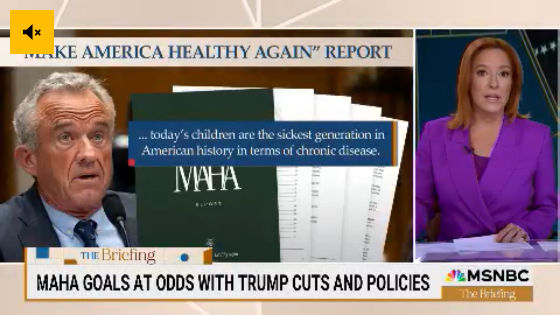- Crime rates are falling; crime is not a national emergency; Why do people think otherwise?
- Republicans criticize Democrats for what they are doing now;
- Why do Republicans think there is so much fraud and abuse everywhere?
- Why “doing your own research” is not plausible;
- JD Vance and cafeteria religion;
- Why do Christians presume they have the advantage in the Supreme Court?
Once again people, crime rates are *falling*. They’ve been falling since the 1990s, except for a blip aligned with the pandemic. There is no emergency in the way conservatives insist.

Vox, Bryan Walsh 24 May 2025: Something remarkable is happening with violent crime rates in the US, subtitled “Americans remained scared of violent crime. The numbers tell a different story.”
The astounding drop in violent crime that began in the 1990s and extended through the mid-2010s is one of the most important — and most underappreciated — good news stories of recent memory. That made its reversal during the pandemic so worrying.
So yes, it rose during the pandemic. Then…
By the 2024 election, for the first time in awhile, violent crime was a major political issue in the US. A Pew survey that year found that 58 percent of Americans believed crime should be a top priority for the president and Congress, up from 47 percent in 2021.
And yet even as the presidential campaign was unfolding, the violent crime spike of the pandemic had already subsided — and crime rates have kept dropping. The FBI’s 2023 crime report found that murder was down nearly 12 percent year over year, and in 2024 it kept falling to roughly 16,700 murders, on par with pre-pandemic levels. The early numbers for 2025 are so promising that Jeff Asher, one of the best independent analysts on crime, recently asked in a piece whether this year could have the lowest murder rate in US history.
All of which raises two questions: What’s driving a decrease in crime every bit as sharp as the pandemic-era increase? And why do so many of us find it so hard to believe?
Well, the answer to this is the same as the answer to why so many people believe false things.
One of the most reliable results in polling is that if you ask Americans whether crime is rising, they’ll say yes. Astonishingly, in 23 of 27 national surveys done by Gallup since 1993, Americans reported that they thought crime nationwide was rising — even though most of those surveys were done during the long crime decline.
Crime is one of the best examples we have of bad news bias. By definition, a murder is an outlier event that grabs our attention, inevitably leading the nightly local news. Sometimes, as during the pandemic, that bias can match reality. But if we fail to adjust to what is actually happening around us — not just what we think is happening — it won’t just make us think our cities are more dangerous than they really are. It’ll sap energy for the reforms that can really make a difference.
Misinformation, conspiracy thinking, and the attitude of base human nature to be always alert to danger, never mind reality as it actually is.
\\\
More projection, and hypocrisy.

The Atlantic, Russell Berman, 24 May 2025: The Big, Beautiful Republican Shrug, subtitled “Republicans routinely criticized Democrats for rushing bills through Congress. Now that they’re in power, they don’t seem to mind.”
When Democrats reshaped the American health-insurance system in 2010, Republicans accused them of all manner of legislative foul play: Middle-of-the-night votes. Backroom deals. An enormous, partisan bill jammed through Congress before anyone could find out what was in it. “Have you read the bill? Hell no you haven’t!” an indignant then-House Minority Leader John Boehner thundered on the House floor.
The GOP’s claims were exaggerated. But as Republicans rushed President Donald Trump’s “big, beautiful bill” through the House this week, they committed just about every procedural misdeed they had ascribed to Democrats back then—and more. The final text of a 1,100-page bill that Speaker Mike Johnson described as “the most consequential legislation that any party has ever passed” became public just hours before Republicans approved it on a party-line vote. They scheduled a pivotal hearing to begin at 1 a.m. and waived their own rules meant to give lawmakers at least three days to review legislation before a vote. One Republican even missed the climactic roll call because, the speaker explained, he fell asleep.
The conclusion to be drawn here is very simple.
\\\
What does it say about Republicans/conservatives that they think there is so much fraud and abuse under every stone, around every corner? Do they think Americans are the greatest people on Earth, or do they think Americans are the greatest liars and cheaters on the face of the planet? The latter is what their accusations imply. (And what does that imply about Christians, who presume to be the moral guardians of society?)

PolitiFact, Louis Jacobson, 22 May 2025: Trump said a GOP bill doesn’t change Medicaid, only targets ‘waste, fraud and abuse.’ That’s False
Answer: they’re using such accusations to target government programs they don’t like. Actual rates of fraud and abuse, from reliable sources, are minuscule compared to their accusations.
\\
Either dumb, or short-sighted.
NPR, 22 May 2025: Congress moves to loosen toxic air pollution rules (via)
Congress has voted to undo a Clean Air Act regulation that strictly controls the amount of toxic air pollutants emitted by many industrial facilities like oil refineries, chemical plants, and steel mills.
The decision represents the first time since the creation of the landmark environmental law that Congress has rolled back its environmental protections.
Prioritize the now, never mind the future, is the conservative philosophy.
\\
Sure, do your own research, create an alternative to humanity’s scientific understanding of the world built over centuries by your few Google searches and social media threads. Realize that all those experts who’ve spend entire careers researching these things are all conspiring against the actual truth that is to be found via some media personality.
MSNBC, Steve Benen, 23 May 2025: RFK Jr. pushes a misguided ‘do your own research’ line as he unveils MAHA report, subtitled “The more Secretary Robert F. Kennedy Jr. talks about people doing their own research, the more important it is to explain why he’s wrong.”
Actually, this links to a piece I already posted about on May 2nd, and quotes the same para that I did. Then:
When the United States has a health secretary who talks about public health issues as if they’re “Choose Your Own Adventure” novels, it’s a reminder that the country has the wrong health secretary.
…
In other words, I can’t do my own research, because I’m not qualified to do that research. People who know what they’re talking about can do their own research, at which point the scientific canon takes shape.
RFK Jr. appears to approach these issues with the assumption that the scientific canon is inherently suspect because it’s crafted by those who reject his conspiratorial and unscientific perspective. When he advises Americans to “do their own research,” it’s a recommendation rooted in the idea that people should poke around the internet until they find sites that give them information that seems true — or that they want to be true.
But that’s not a responsible approach to public health. On the contrary, it’s madness.
The world is complex. It is not understandable through a few Google searches. It is only *partially* understandable through a few college degrees, because it’s only possible to understand a small portion of reality at a time. Experts are expert in only their particular subject… and, alas, can be just as ignorant, and even given to conspiracy theories, about other subjects as the general population is. Linus Pauling and Vitamin C comes to mind.
\\\
Cafeteria religion.

Salon, Mary Elizabeth Williams, 23 May 2025: JD Vance isn’t even trying to align his politics with the Catholicism he chose, subtitled “JD Vance rationalizes his anti-Catholic positions — he should negotiate them instead”
Google AI:
“Cafeteria religion” refers to a practice where individuals pick and choose which religious beliefs, practices, or doctrines they adhere to, similar to how one selects items from a cafeteria line. This term is often used to describe individuals who identify with a specific religion but only embrace certain aspects of its teachings while rejecting others.
The Salon piece has many examples of Vance doing this with Catholicism — which as I recall he converted to relatively late in life because he admired its majesty, all those cathedrals and vestments. Concluding:
JD Vance, in contrast, wants to take communion on Sunday and separate families on Monday, because there’s no sincere recognition in there of the teachings of Christ. He may have gone to catechism class, but he hasn’t done his homework. And he hasn’t brought his Catholicism and his political ambition to the table to hash out their differences in a meaningful way. Rationalization is not negotiation, and I can promise that you can’t get into Catholic heaven disrespecting its fundamental rules.
\\
One more.

Vox, Ian Millhiser, 22 May 2025: The religious right just suffered a rare setback in the Supreme Court, subtitled “One of the GOP justices must have defected in a case about religious schools, but the Court didn’t reveal who it was.”
The details of this case aren’t of interest to me so much as the presumption that the topic is worthy of consideration because it’s about Christians. Would the same arguments work if this were about a charter school for Muslims? I suspect not. They’re missing the point about separate of church and state. Christians presume the separation doesn’t apply to them, because they’re in the majority.






